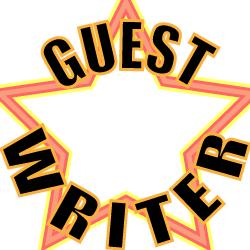 English was not their first language, it was clear. They stood on the sidewalk outside Davies Symphony Hall and peering at a guidebook, rotating it so that the orientation of the map matched the way they were facing. “MacAllister Street?” the man asked, and I told them they only had to walk three blocks. The man’s shoulders relaxed and they headed up Franklin St.
English was not their first language, it was clear. They stood on the sidewalk outside Davies Symphony Hall and peering at a guidebook, rotating it so that the orientation of the map matched the way they were facing. “MacAllister Street?” the man asked, and I told them they only had to walk three blocks. The man’s shoulders relaxed and they headed up Franklin St.
I think about intent a lot. The tourists’ intent was clear, but they didn’t quite know how to get there. My horn students are in the same situation a lot of the time. They either don’t know where they are going, or they don’t know how to get there. Or maybe both. So we try and teach them a good concept. They are required to go listen to performances on CD of repertoire that they are studying, and imitate how the players interpret the solos. It’s pretty simple—you develop an idea of how it’s supposed to go, play it, and see whether you succeeded in matching your concept. If you don’t, then try again. If you do, you then can evaluate your concept and see whether you still like it, then regroup if you don’t, or move on to something else if you do. It’s a simple feedback loop that improves you as a player. But it’s a simple rule—your playing follows your concept. Just like the tourists, you end up where you set out to go, or at least get closer. But if you are not where you think you are, following the directions won’t do you much good.
That’s why being able to hear yourself is a great help. I make all my students buy a Flash Recorder—a tiny, handheld recording device that makes it simple to record yourself and play it back. So you can then hear yourself, unencumbered by having to play, listen and evaluate at the same time. It’s incredibly powerful, but it does you little good if you don’t know what good horn playing sounds like. So by listening to other great players, a student develops a truer and more refined concept to aspire to, and thus lead them forward.
Although I am not as good a writer as I am a horn player, the same principle seems to be valid. We have all been readers, inspired by great writing our whole lives. What we need to learn is how our writing compares to what has come before. That’s why we want others to read it and tell us. By that feedback we learn to see our writing more clearly, and can then become better. In BWW’s Craft Class, we write and then read our creations to the class. In that way, we become better writers and better readers, a circular loop that improves both our imagination and our perception.
Every year I explain to my new students that my goal as a teacher is to make myself obsolete. I want to give them the tools to be able to teach themselves. That’s the true definition of good teaching, I believe, and when you reach a certain level, suddenly you can leverage your knowledge and make a huge leap forward. It is terrifically exciting to see that in a student. But it only happens with a lot of hard work. (I’ve often dreamed of being able to watch a baseball game with the eyes of a major leaguer. How different it would look and how much better I would understand it! Perhaps this is another “high-concept” short story).
As musicians, writers and human beings, one of our goals is to be able to see ourselves and our work as others see it. When I play a concert, my solos float out into the audience and then disappear into the air. Sometimes a CD preserves them. But writing exists in a tangible form, and over time we can revise and make it better just like repeating a musical passage. As long as we follow our concepts higher and higher, we cannot fail to get closer to our ideals.
Robert Ward is Principal Horn of the San Francisco Symphony, and in between concerts, tours, recordings and teaching, he has managed to almost finish his first novel, “The Halflife of Memory”. He is a founding member of the Book Writing World.

Beautifully written. Insightful.
Thanks Wendy – appreciate you taking the time to read it.
Lots of good parallels here, between making good music and writing good prose, as well as living a good life. Astute, and inspiring piece, Bob! And BTW, your students are very lucky to have you as a teacher.
What a great comparison between teaching horn and learning to write prose! It’s a great idea to have your students listen to examples of fine solo playing. We get to read examples of great writing whenever we pick up a good book. You are truly an inspiration!
What a great comparison between teaching horn and learning to write prose! It’s a wonderful idea to have your students listen to examples of fine solo playing. We get to read examples of excellent writing whenever we pick up a good book. You are truly an inspiration!
Great article, Bob! But you know, your horn solos do more than just float out into the room. They also float INTO the minds of the listeners, and are there preserved in that place where music and memory stir it up. Good luck with your writing AND music!
Lee’s sister, Amy